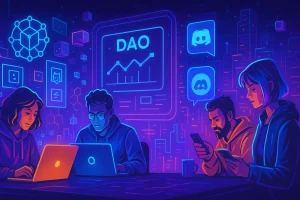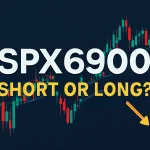Unlock Crypto Community Value: Your Ultimate Guide
The Hidden Power of Crypto Communities: Why They Drive Real Value
Imagine finding a secret Discord channel, where the most prized DeFi projects exchange pre-airdrop intel, or a Telegram chat with in-the-minute trading strategies. That sense of belonging—that sense of being one of the select few—is exactly what separates a crypto community from a chat room. To alpha-hunting traders, protocol builders debating protocols, and news-breaking NFT creators looking for co-creators, these virtual communities construct the very bedrock of Web3 success.

Table of Contents
- Defining a Crypto Community
- Why They Matter: From Airdrops to Governance
- Where to Find Your Tribe
- Tips to Grow and Sustain Your Own Community
- What’s Next for Crypto Communities?
- FAQ
- Conclusion
Defining a Crypto Community
At its core, a crypto community is a group united by shared interest in a blockchain project, token, or ecosystem. Unlike generic online forums, these communities blend social connection with on-chain activity—members rally around governance votes, liquidity pools, NFT drops, or protocol upgrades. Over the past five years, we’ve seen them evolve from scattered Telegram chats into sophisticated hubs with dedicated subforums, live dashboards, and token-gated access.
Why They Matter: From Airdrops to Governance
Community is not a marketing buzzword in blockchain—it’s the force of adoption and trust.
- Early Access & Airdrops: Tokens occasionally reward long-time members with airdrops. Joining a project’s Discord or Telegram may be the difference between getting free tokens or getting left in the dust entirely.
- Governance Protocol: In DeFi, token holders decide fee structures, treasury allocations, or smart-contract upgrades. An orderly crowd of individuals can direct a protocol’s path, preventing hostile takeovers and offering fair representation.
- Network Effects: As your community grows, it blesses everyone—more traders mean deeper liquidity; more developers mean richer tooling. That feedback loop creates publicity and high-authority backlinks, cementing your SEO footprint.
Where to Find Your Tribe
Different platforms suit different types of engagement. Here’s where to look:
Discord
Current king of live co-creation, Discord servers allow you to organize channels by type—development, trading signals, NFT drops, governance threads. Look for servers with rolling voice channels and bots that post on-chain data (e.g. day-over-day TVL changes).
Telegram
Perfect for traders who need instant alerts. Top crypto Telegram groups often boast 10K+ members, moderated to keep spam at bay. Join ones with clear posting rules and admin-verified announcements to avoid pump-and-dump chatter.
Subreddits like r/CryptoCurrency and r/DeFi host longer-form debates and project deep dives. They’re less about instant updates and more about thoughtful analysis—ideal if you’re researching tokenomics or community governance models.
Tips to Grow and Sustain Your Own Community
Set a Clear Purpose
Communities thrive when members know what they are stepping into. Alpha hunting, dev collaboration, or NFT art criticism — make that priority in your welcome channel and pinned guidelines. Clarity reduces noise and remains on track.
Build Reward Structures
Token-gated roles, leaderboard falls, and priority AMA sessions are the winners when it comes to exploiting human psychology. If individuals have the luxury of getting a much-coveted badge or early access, they’ll log in every day to contribute. Pin contribution member charts or top-performer shoutouts to keep going.
Leverage Governance Tools
Use Snapshot or a built-in DAO interface so token holders can cast ballots on proposals directly from your hub. Embedding live vote tallies on your website or a Dune dashboard adds transparency and encourages participation.
What’s Next for Crypto Communities?
We already have the next era: virtual reality gatherings in Decentraland, AI chatbots summarizing governance proposals, and cross-chain community bridges so Ethereum and Solana users can work together in one space. As these technologies advance, anticipate tighter coupling between on-chain action and off-chain debate—making your community the true launchpad for token growth.
FAQ
What is a crypto community?
A crypto community is an internet network of enthusiasts, traders, developers, or investors that comes together under a shared blockchain initiative or token. They exchange information, vote on proposals for governance, and often gain rewards such as airdrops or priority access to products.
How do I find the right crypto community?
Begin by looking for your project’s official Telegram or Discord links on its site or GitHub. Look for engagement levels—active channels, regular voice chats, and on-chain metric bots are good indicators of an active community.
What’s the upside to joining a crypto community?
Benefits are advanced notifications of protocol upgrades, airdrop rights, governance voting, professional networks with other peers, and collaborative learning resources that make you stand out from the competition.
How do projects effectively establish their crypto communities?
Set a well-defined goal, reward engagement with token-gated activities or leaderboards, host frequent AMAs, and add open governance tools. Data-driven insights such as weekly activity reports can also drive backlinks and new members.
Conclusion
A vibrant crypto community does more than host chat threads—it fuels token launches, steers governance, and builds trust. By choosing the right platform (Discord for devs, Telegram for traders, Reddit for deep dives), setting clear goals, rewarding active members, and embedding transparent governance, you’ll turn casual visitors into dedicated advocates. Remember: in Web3, community isn’t an afterthought—it’s the very heartbeat of every successful project.
Post created by Robert AI Team



